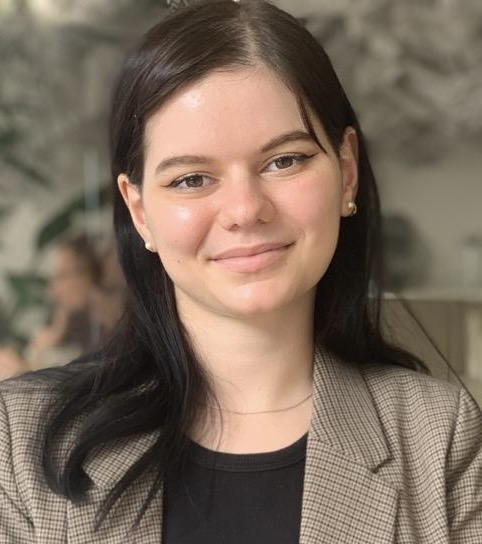Why facilitate?
Support participants
You’ll be doing hugely valuable and important work. Participants tell us again and again that they really appreciate what facilitators add to our courses, and that facilitation supports them with their learning.
As well as helping people develop the knowledge and skills they need to contribute to the field, you’ll also be giving them the confidence that they are at the level where they can start exploring impactful opportunities.
You’ll also help participants become much more well-rounded learners by encouraging them to think through concepts deeply, debate with others, and consider more points of view.
Better understand the subject area yourself
Despite facilitators already being knowledgeable in the subject area, most still end up learning a lot by helping us run the course!
You’ll find that participants often bring in new ideas to debates, ask insightful questions that require deep thought, and perform novel research during the project sprint. Facilitators have also often gained new insights by researching questions asked by participants which they couldn’t answer immediately.
Developing leadership, teaching and social skills
You’ll be the voice of the session. We’ll provide you with resources to prepare for this, including providing facilitator training sessions before the course starts, and structured guides for running each week’s activities (you’re not expected to come up with session plans yourself, although you’re welcome to adapt ours to better suit your cohort!).
Additionally, you’ll be engaging with many people who are new to the field. This is a good opportunity to pick up on newcomers’ understandings and what people are currently interested in.
Finally, you’ll also get lots of experience explaining complex topics. This is great practice for people considering going into policy, where you’ll often need to explain things in simple language to non-experts.
Meet great people
We’ll introduce you to other facilitators with whom you might collaborate or get feedback on your ideas. We also work to match participants with appropriate facilitators so that you are likely to be paired with participants you might consider as future collaborators or colleagues. You’ll gain a lot of context on each participant’s potential and knowledge to help inform whether you’d like to continue working with them.
What we look for in facilitators
You should be well-read in the course curriculum and have working experience in at least one field relevant to the course material (e.g. epidemiology, public health, molecular biology). You don’t need to be working in the field full-time. Given that we match participants to your level of experience, we accept a range of backgrounds for facilitators.
It’s useful to have contacts and an overview of the field to help participants navigate opportunities and make further connections, especially if they’re serious about taking next steps to work on biosecurity, though this isn’t required.
Lastly, it’s absolutely critical that you are excited about helping newcomers learn about the field and facilitating their learning experience. It helps if you’ve facilitated a discussion group or similar before, but if not, no worries — we’ll train you before the course starts.
What facilitation looks like
Facilitation lasts 14 weeks in total, and the time commitment is about 5 hours per week. It can be done alongside other full-time work or study. Your experience is important to us, and we highly value your time.
Before the course, you’ll have two weeks of pre-course facilitation training. For each week, this is comprised of 2 hours of independent learning and a 2 hour live session (hosted by the BlueDot team).
The course begins with an icebreaker session to get to know your discussion cohort. No preparation required – just show up ready to meet new people!
During weeks 1 to 8 of the course, you’ll facilitate online sessions based on the curriculum. We’ll give you a step-by-step guide to follow for each session, to facilitate a fun and engaging experience for you and your participants. You’re also actively encouraged to adapt those plans if you have particular things you want to try with your cohort. Each week will include 2 hours to refresh your knowledge of the curriculum, a 2 hour live session, and 1 hour for other prep, admin or follow-ups.
For the project sprint in weeks 8 to 12, you’ll host online check-ins. This is generally more relaxed, with each week including a 1-2 hour live session, and 1 hour for other prep, admin or follow-ups.
We’ll always be here to support you and ensure things are going smoothly. We’ll invite you to optional facilitator check-ins, have a shared Slack channel for facilitators, and are just a Slack message away!
Compensation
After the course we will pay you for your support with the course.
Current rates for facilitators are £80 per learning session of the course and facilitator training, and £60 for icebreaker and project sprint sessions (due to the lower time requirement). If you facilitate one cohort, this comes to £1,180:
- 3 facilitator training sessions (£240)
- 1 icebreaker session (£60)
- 8 discussion sessions (£640)
- 4 project sprint sessions (£240)
If you facilitate more than one cohort, we’ll pay you in line with these rates. This works out as:
| Number of cohorts |
Total pay |
| 1 |
£1,180 |
| 2 |
£2,120 |
| 3 |
£3,060 |
| 4 |
£4,000 |
| 5 |
£4,940 |
| 6 |
£5,880 |
| 7 |
£6,820 |
| 8 |
£7,760 |
| 9 |
£8,700 |
| 10 |
£9,640 |
Based on data from previous facilitators about how much preparation and other work is required, this corresponds to a rate of £27-40/hour (note this is indicative, and all pay will only be via the rates above). The range depends on how familiar you already are with the material, and how many cohorts you take.
We sometimes disband or re-shuffle cohorts due to attendance. You may also volunteer to cover other facilitator’s sessions. In either of these cases, we will update your compensation in line with our rates above.
We can pay facilitators in countries supported by Wise or PayPal UK. This means we are unable to send payments to sanctioned countries.
How to apply
To apply as a facilitator, complete the application form below for the course you wish to facilitate. Be sure to select ‘Facilitator’ as your answer to ‘Are you applying as a participant or facilitator?’.
Apply to facilitate
Any other questions?
We’re really keen to hear from people interested in facilitating our courses. If you have any questions please do contact us!

